Teacher learns about herself and how to live with anxiety
A lifelong educator seeks behavioral health care to manage repetitive worries, and masters mental wellness in the process.
Virginia Heerema displays her prized tulips, a symbol of her Dutch culture.
When it comes to learning how to manage anxiety, many people would benefit by walking in Virginia Heerema’s shoes.
Heerema, a Kaiser Permanente member since 1970, sought behavioral health intervention for anxiety she was feeling about her impending retirement. After 36 years of teaching middle and high school English, she was facing daunting life changes. Now, the Thousand Oaks, California, resident copes with anxiety by using drug-free techniques that she learned during psychotherapy sessions at Kaiser Permanente Woodland Hills Medical Center.
Paired with a well-matched therapist, Heerema developed a trusting relationship in a safe environment. She felt comfortable discussing everything from her conservative Dutch Calvinist background to the strict rules of her upbringing, to her mother’s mental health struggles and resulting prescription drug dependency.
“I learned not only to better understand and appreciate my mother’s struggles but also to love her more dearly,” Heerema said.
Patient and therapist find an approach that works — together
For her behavioral health intervention, Heerema wanted to avoid medication. Megan Johnson, MD, a psychiatrist at Woodland Hills Medical Center, listened carefully and agreed.
“Patients need to choose techniques that work for them. There are medications to treat anxiety, and some can be effective,” said Dr. Johnson.
“However, older adults are more susceptible to the side effects that medications can cause, and many of them are interested in keeping their medication list as simple as possible.”
Treating anxiety and depression without medication
Dr. Johnson noted that older adults are quite capable of learning “new tricks” and techniques to manage depression and anxiety.
- Cognitive techniques are learned ways to understand our feelings and recognize when recurrent worries are leading to anxiety.
- Behavioral techniques — including recreational activities and deep-breathing exercises — can relax the body and override the fight-or-flight responses to unpleasant thoughts. Patients undergoing psychotherapy can document their negative feelings and discuss them during therapy. “They can step back from the immediate experience and look at it as something we’re going to work on together,” said Dr. Johnson.
- Psychotherapy works well for many patients, even those who take just a few sessions. According to Dr. Johnson’s original research into the value of psychotherapy in treating depression, findings showed a benefit among those who had brief telephone appointments with psychotherapists. Group and online therapy are also increasingly popular options.
From therapy to volunteering
During the longer course of Heerema’s therapy, she was introduced to a variety of helpful techniques to deal with her anxiety: learning breathing exercises and relaxation responses, connecting physical pain to emotional issues, interrupting ruminating thought patterns, getting physical exercise, and exploring meaningful, inclusive ways to apply her faith-based beliefs.
These techniques resulted in deeper insights and progress in her care. Heerema adds, “Because my life was richly enhanced by my therapist's skills in attentive listening and sensitive, helpful responses, I was inspired to volunteer in hospice and for other programs."
Dr. Johnson notes that members may self-refer for behavioral health appointments, and do not need a psychiatry evaluation to do so. Learn more about mental health and wellness care at Kaiser Permanente.
-
Social Share
- Share Teacher Learns About Herself and How to Live with Anxiety on Pinterest
- Share Teacher Learns About Herself and How to Live with Anxiety on LinkedIn
- Share Teacher Learns About Herself and How to Live with Anxiety on Twitter
- Share Teacher Learns About Herself and How to Live with Anxiety on Facebook
- Print Teacher Learns About Herself and How to Live with Anxiety
- Email Teacher Learns About Herself and How to Live with Anxiety

May 22, 2025
Los Angeles area wildfires: How we helped our communities
We moved quickly to ensure that people in our communities could still get …
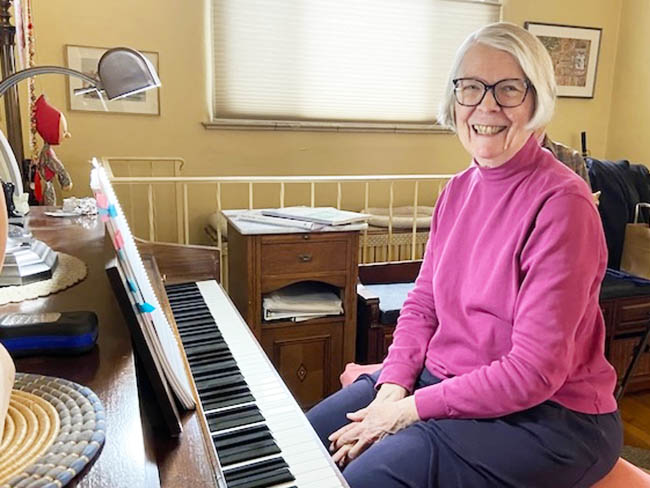
May 19, 2025
Member praises 50 years of collaboration with care teams
Karen Hansen’s doctors and clinicians have partnered with her to customize …

May 7, 2025
How to cope with anxiety after childbirth
As a new mother, Cherissa Ong was overwhelmed by stress. A mental health …

April 30, 2025
From fighter to father: How addiction care changed his life
Travis Taylor has substance use disorder and mental health conditions. …

April 23, 2025
Healing the human spirit
Kaiser Permanente strives to support survivors of sexual violence.

March 29, 2025
We are meeting mental health care access requirements
The investments we’ve made over the last several years have resulted in …

March 27, 2025
Living proof: Colon cancer highly treatable if caught early
There is an alarming rise in colon cancer rates among younger adults. Cynthia …

March 27, 2025
We’re committed to mentorship, mental health, and communities
Kaiser Permanente awarded Elevate Your G.A.M.E. a grant to expand program …

March 7, 2025
High blood pressure during pregnancy is on the rise
The keys to preventing cardiovascular conditions during pregnancy are knowing …
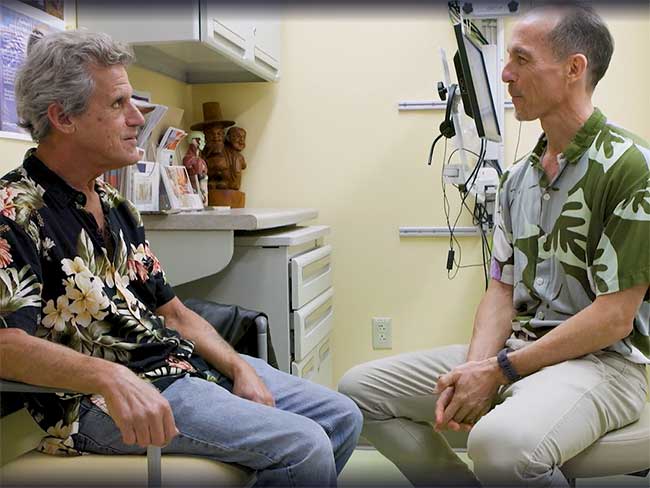
March 7, 2025
Kaiser Permanente in Hawaii cures 1,000th patient with hepatitis C
The milestone highlights its Viral Hepatitis Clinic's crucial role in addressing …
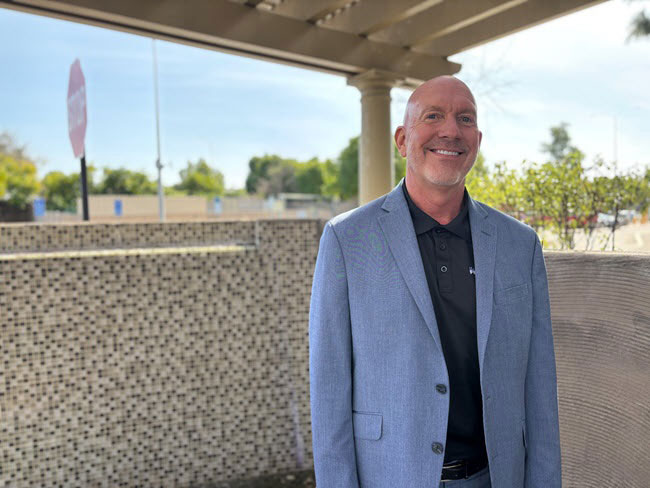
February 27, 2025
‘The heart attack that saved my life’
A sudden heart attack led Mark Twichel to seek care at Kaiser Permanente …

February 26, 2025
Colon cancer: Do you need to be screened?
If you’re age 45 or older, getting checked regularly for colorectal cancer …

February 26, 2025
Spring into a better night’s sleep
A Kaiser Permanente sleep expert shares tips for decreasing the impact …

February 25, 2025
Providing care to trauma survivors
Kaiser Permanente has been at the forefront of recognizing how trauma impacts …

February 18, 2025
I just need a chance
Billy Cardosi spent his life putting his family and job first. Then a heart-rela …

February 14, 2025
A fulfilling life on the other side of ovarian cancer
As a wife and a mother, Autumn Gray was determined to beat cancer to be …

February 11, 2025
Stressed about the news? Try a ‘news diet’ — and hugs
When news and online information become too stressful, Dr. Sammie LaMont …

February 4, 2025
What is therapy, anyway?
At Kaiser Permanente, our care is personalized for each patient's mental …

January 24, 2025
Is one drink a day OK? Here’s what to consider
NPR

January 22, 2025
A preteen overcomes anxiety and suicidal thoughts
A young Kaiser Permanente member speaks up to gain the mental health support …
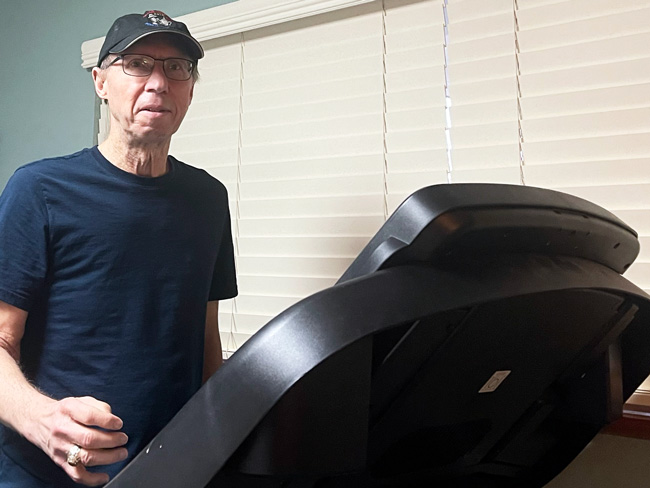
January 15, 2025
After surgery, home was where his heart was
Virtual cardiac rehabilitation offers Mike Erskine a convenient, safe way …

December 26, 2024
How telehealth can make life easier for people with cancer
Virtual care connects cancer patients like Rob Tufel to a wide range of …
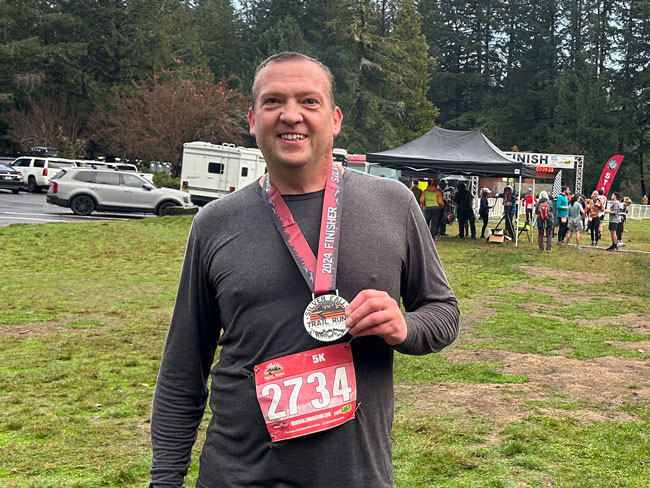
December 19, 2024
From darkness to sobriety and recovery
Once suicidal and on the verge of losing his job, Eric Jeffers has found …

December 13, 2024
How to stay happy and healthy over the holidays
Sammie LaMont Moss, MD, a psychiatrist for Kaiser Permanente in Colorado, …

December 10, 2024
Accelerating growth in the mental health care workforce
Actions policymakers can take to grow and diversify the mental health care …

November 26, 2024
How to reduce your risk of stroke
A Kaiser Permanente doctor and researcher shares the simple changes you …

November 18, 2024
The power of early detection and proactive men’s health
A father's determination to stay healthy for his 3 children led him to …
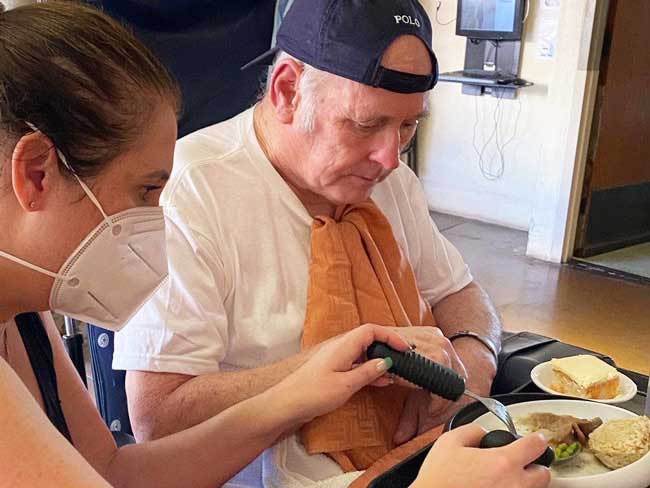
November 13, 2024
Self-care for caregivers matters: Here’s why
A sharp increase in rates of adult caregiving is taking a mental and physical …

November 12, 2024
Surviving lung cancer as a nonsmoker
As a lifelong nonsmoker, Mariann Stephens was shocked to learn she had …

November 4, 2024
Recruitment and retention in behavioral health
An expert’s insights on the changing mental health landscape, its impact …

October 29, 2024
That’s not tennis elbow
A Kaiser Permanente physician thought he pinched a nerve during a tennis …

October 23, 2024
Doomscrolling? It may affect your heart.
Endless bad news is just one fingertip away online. One Kaiser Permanente …
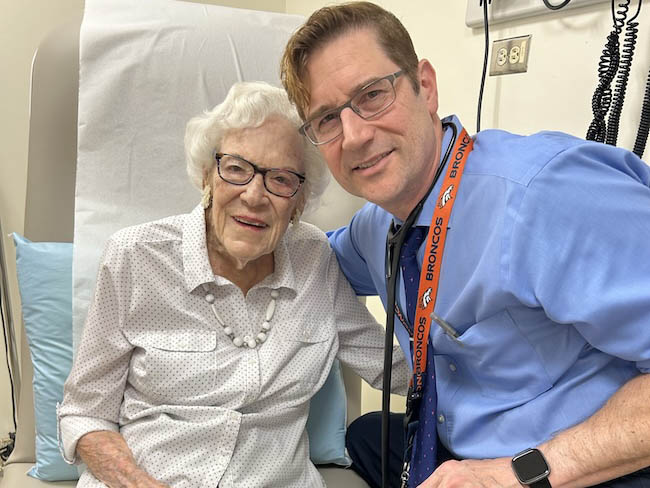
October 15, 2024
107-year-old member credits Kaiser Permanente for longevity
Bettye Garrett’s personal doctor says her healthy perspective on life’s …

October 10, 2024
Child anxiety relief: Therapy gets a digital boost
Shiloh Sevin’s well-being improves thanks to her psychologist and the Calm …

October 8, 2024
Exploring your relationship with alcohol
If you're rethinking your habits, here are some questions to keep in mind.

October 8, 2024
It started with a bad feeling
In August 2023, John Lynn collapsed at work. For the next year, he fought …

October 4, 2024
Study shows new way to prevent suicides
Primary care teams can make a big difference in their patients’ lives, …

October 1, 2024
From depression to connection: Older adult finds her way
After a long period of loneliness and isolation, Roberta Maguire gets the …

September 27, 2024
Youth suicide in the digital age is raising concerns
Young people face growing pressures from social media, school, and other …

September 27, 2024
Traumatized children find mental health therapy beneficial
A Ventura County community-based nonprofit provides counselors to help …

September 20, 2024
Ovarian cancer journey confirmed nursing student's calling
Miriam Gutierrez was diagnosed with late-stage ovarian cancer at age 31. …

September 18, 2024
More than 100 ‘Top Docs’ recognized in Washington state
Kaiser Permanente celebrates doctors and nurse practitioners recognized …

September 17, 2024
A Latina’s voice in mental health is impactful with her clients
Connecting through a shared heritage gives one therapist a unique perspective …

September 17, 2024
Playing on after 2 decades of cancer care
With the support of his health care team and nurse navigator, musician …

September 17, 2024
Groundbreaking at new medical offices in Pueblo
The new Pueblo North Medical Offices will replace the existing facility …

September 11, 2024
Buprenorphine saves lives. Why can’t more patients get it?
Policy changes are crucial for better opioid addiction treatment.

September 6, 2024
Navigating a world turned upside down after heart failure
After a life-threatening series of heart attacks at age 57, Bunnell Fockler …

August 29, 2024
After Stage 4 ovarian cancer, she’s still going strong
Donna Budway received prompt surgery followed by chemotherapy. She credits …

August 29, 2024
Neurosurgery and a deep, enduring doctor-patient relationship
A basketball coach’s remarkable story of undergoing brain tumor surgery …

August 28, 2024
Making breastfeeding work: A second-time mom’s journey
Support from a dedicated care team helps Tiffany Anonye breastfeed her …
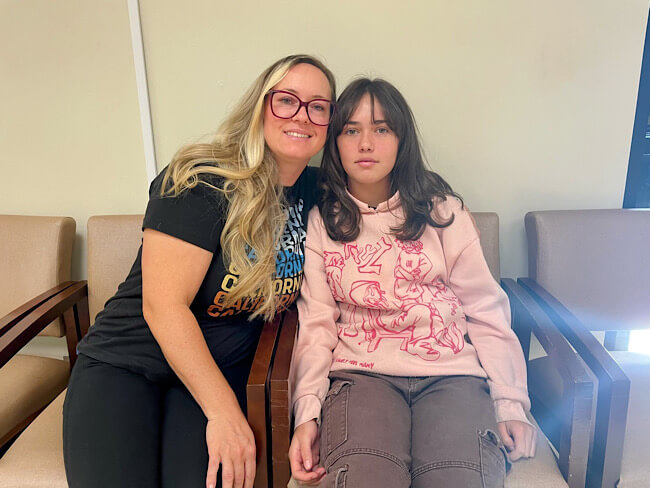
August 27, 2024
From sore throats to ice cream floats
A mother and daughter share a special bond after undergoing tonsillectomies …
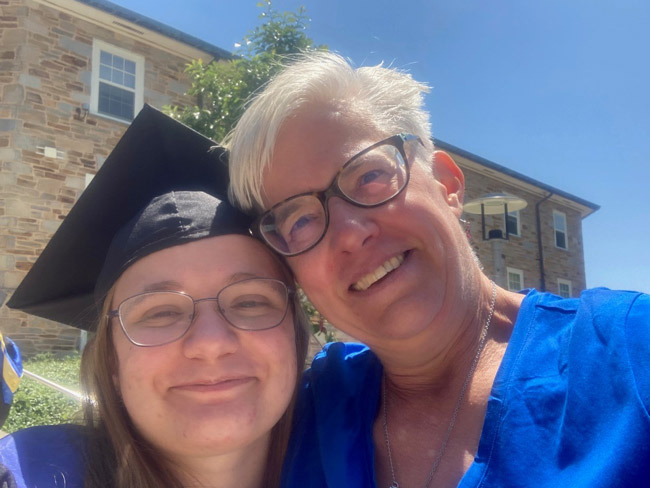
August 16, 2024
After severe depression, a ‘rainbow lit up my sky’
Shannon Parkin survived 7 suicide attempts. She shares her story of hope …

August 15, 2024
Back home one day after heart surgery
Ed Dalmasso needed an aortic valve replacement. His care team provided …

August 6, 2024
For a father with prostate cancer, knowledge is power
Harold Newman had advanced prostate cancer. Genetic testing helped expand …

August 1, 2024
Kaiser Permanente tops Colorado ‘Top Doctors’ list
5280 Magazine named 332 Kaiser Permanente physicians to its annual Top …

July 11, 2024
Transforming education and mental health in Watts
Our investment in the Watts neighborhood of California, in partnership …

July 10, 2024
We help members lower their risk of heart attacks and strokes
A Southern California program, powered by our connected care model, is …

June 28, 2024
Health Action Summit highlights mental health opportunities
The Kaiser Permanente Colorado Health Action Summit gathered nonprofits, …

June 27, 2024
5 facts about autism
A Kaiser Permanente doctor shares key details. By learning more about autism, …

June 25, 2024
Prompt postpartum care saves a baby’s life
When a newborn was diagnosed with meningitis, a life-threatening infection …

June 19, 2024
Investments in Black community promote total health for all
Funding from Kaiser Permanente in Washington helps to promote mental health, …

June 13, 2024
Conquered 2 cancers while climbing mountains
Chris Hogan faced kidney cancer and prostate cancer at the same time. He …

May 31, 2024
Stage 4 lung cancer: A story of hope
A young father is enjoying “bonus time” with his kids thanks to new targeted …

May 21, 2024
Surviving stage 4 lung cancer with immunotherapy treatment
Patients like Carol Pitman are living longer thanks to advances in lung …

May 14, 2024
A key ally in navigating mental health care for kids
Behavioral health consultants can provide a better understanding of often …

May 10, 2024
Self-care is key for new parents
Feeling emotional or overwhelmed after a new baby’s arrival? You’re not …

May 3, 2024
Lonely and depressed — but not alone
After a lifetime of feeling isolated, Moth Wygal finds connection thanks …
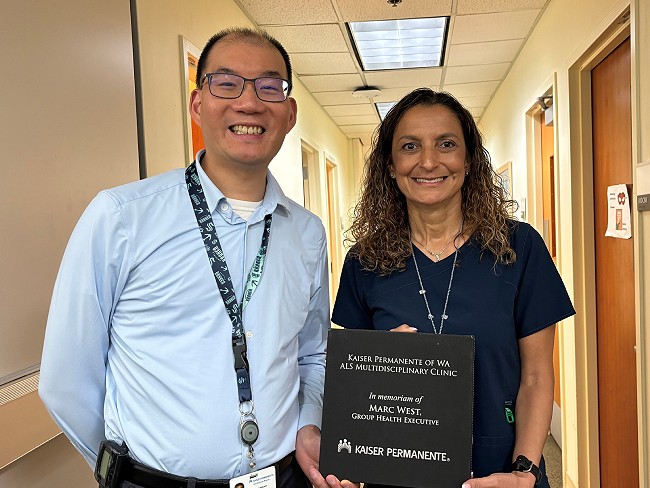
May 1, 2024
Tacoma ALS clinic recognized for high-quality care
Patients with amyotrophic lateral sclerosis, also called Lou Gehrig’s disease, …

April 29, 2024
Soccer star: ‘Let’s talk about mental health’
Naomi Girma, a sports ambassador for Kaiser Permanente, is passionate about …

April 10, 2024
For a new mom, talking about her worries helped her heal
One in 5 people experience depression, anxiety, or other mental health …

April 9, 2024
Denver Fire Department annual blood work screenings triple
It’s easy to put off recommended health screenings, and sometimes even …

April 8, 2024
Reducing inequity with fruits and vegetables
Black Americans experience worse health outcomes compared to other populations. …

April 1, 2024
Lynch syndrome: Managing the risk of hereditary colon cancer
Lynch syndrome is a gene mutation that increases colon cancer risk. Learn …

March 29, 2024
Faster recovery: From cardiac scare to exploring Italy
Virtual cardiac rehab helped Mike Kelly heal at home after a life-threatening …

March 20, 2024
Life after cancer: Surviving and thriving
A healthy life after cancer is possible. Learn how Kaiser Permanente helps …

March 14, 2024
Healthy kidneys support overall good health
Kaiser Permanente excels in preventing, detecting, and treating kidney …

March 14, 2024
Midwife offers personal care for mom facing complications
For Sam Beeson, having a midwife at her side during her pregnancy helped …

March 5, 2024
Researchers look for ways to find pancreatic cancer early
Early detection of the disease, before it becomes advanced, will increase …

February 22, 2024
The journey of a lifetime
Care teams at Kaiser Permanente Fontana Medical Center helped Phillip Crawford …

February 21, 2024
From planning his funeral to celebrating his wedding
Gabriel Abarca had no hope for his future. Then the team at Kaiser Permanente …

February 21, 2024
Recovering at home after a double mastectomy
Innovative surgical recovery program helps breast cancer patients safely …

February 13, 2024
A legacy of life-changing community support and partnership
The Kaiser Permanente Watts Counseling and Learning Center started as a …

February 12, 2024
Proposition 1 would bolster mental health care in California
Kaiser Permanente supports the ballot measure to expand and improve mental …

February 2, 2024
Expanding medical, social, and educational services in Watts
Kaiser Permanente opens medical offices and a new home for the Watts Counseling …

January 29, 2024
Empowering minds to help others thrive
Supporting behavioral and mental health in communities where needs are …

January 24, 2024
A full-circle journey for one cancer survivor
Grateful for compassionate and successful Hodgkin lymphoma treatment at …

January 22, 2024
Solutions for strengthening the mental health care workforce
Better public policies can help address the challenges. We encourage policymaker …

January 17, 2024
How diabetes can affect your heart
People with diabetes are more likely to have heart disease.

January 10, 2024
‘You don’t know unless you ask them’
Kaiser Permanente’s Patient Advisory Councils help us create exceptional …

January 3, 2024
Addressing the shortage of mental health workers
There aren’t enough mental health professionals in the U.S. to meet the …

December 19, 2023
Determined to drop the weight and stop the cycle of diabetes
Following a COVID-19-related hospital stay, Robert DeLeon took charge of …
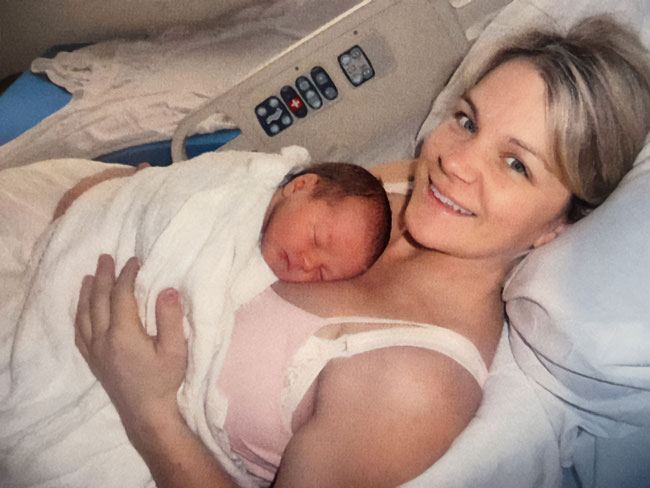
December 15, 2023
Family-centered care, through pregnancy and beyond
Members experiencing a low risk pregnancy have the option of having their …

December 7, 2023
Safe, secure housing is a must for health
We offer housing-related legal help to prevent evictions and remove barriers …

December 6, 2023
Video prenatal visits are a boon for a busy working mom
A new care option offers a mix of in-person and virtual visits, supported …

December 1, 2023
Surviving — and thriving — after cancer
From diagnosis to recovery, David Parsons, MD, shares how screening, treatment, …

November 29, 2023
Tapping into an array of mental health options
Pavan Somusetty, MD, explains how people who need support and guidance …

October 25, 2023
Breast cancer during pregnancy: Caring for mom and baby
A team of specialists treats an expecting mother’s cancer while keeping …

October 24, 2023
Childhood anxiety: What parents need to know
A child and adolescent psychiatrist shares tips on supporting your child …

October 23, 2023
A renewed sense of purpose after surviving breast cancer
Joy Short, a Kaiser Permanente member and employee, turned her breast cancer …

October 11, 2023
Bridging the mental health gap
Kaiser Permanente’s partnership with Fontana Unified School District brings …
